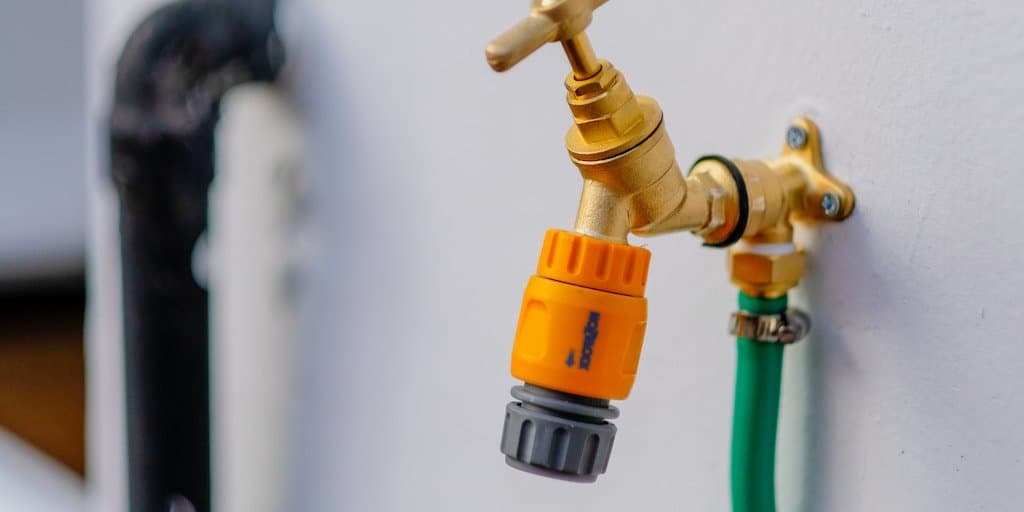
Know why so many landlords run into trouble?
Because they’re reactive, not proactive.
For months — or even years — they ignore their rental properties. Then, suddenly, panic mode sets in when the property needs a new furnace, or a new water heater, or new gutters (you know where I'm going with this).
Personal finance legend J.D. Roth makes the case in his (excellent) book Your Money: The Missing Manual that every dollar spent on preventative maintenance saves $100 in eventual home repairs.
When you think about it, that means that an ounce of prevention is worth over six pounds of cure, not one.
If you want a competitive advantage over other landlords, have the discipline to engage in prevention techniques.
Don't want to mess with preventative maintenance and regular repairs yourself? Consider investing in land as an alternative to buying residential rentals.
If you're serious about making money as a landlord, though, here are eight preventative maintenance tasks to save you thousands.
1. Service the HVAC System Every Spring and Fall
Furnace and air conditioning repairs are some of the most expensive – and sudden – that landlords face … but many are preventable with attentive maintenance.
Every fall — say, around October — send an HVAC contractor to service your furnaces. Not only will they catch problems early, but basic maintenance dramatically extends the life of your furnaces.
Likewise, service your air conditioning units in the spring before they’re needed. And if that’s just too much work for you, have the contractor service both, in either the spring or fall.
As a side benefit, well-maintained HVAC systems operate more efficiently.
Another reason to do preventative HVAC maintenance? The work is cheaper in during HVAC contractors' off-season, the temperate spring and fall months. In the depths of winter or the heat of summer, expect to pay top dollar for emergency HVAC repairs.
2. Require Tenants to Change the Air Filters Every 3 Months
In your lease agreement, add a clause that tenants are required to change the air filters every three months. Be sure to provide the filter size in the lease.
Dirty air filters put a far greater strain on HVAC systems, making them work harder for fewer results. Beyond strain on your system, it also impacts efficiency and utility costs.
How do you enforce this rule? With regular property inspections.
Another clause to include in your lease agreement is semi-annual rental unit inspections, so you can check on the property’s condition and make sure the tenant is complying with your lease rules.
If that sounds dangerously close to “work” to you, well, no one said managing rental properties was work-free!
One other maintenance task that can (and should) be outsourced to your tenants is replacing smoke and carbon monoxide detector batteries, along with periodic testing. It's one more lease requirement that you should confirm they’re following when you do your semi-annual inspections.
3. Trim Tree Branches Every Spring or Fall
Winter snows are hard on trees.
As snow piles up on branches, it can weaken them to the point of breaking in the next storm. The last thing you want is a branch falling on your rental property, or worse, on your tenants.
If your property has trees, send an arborist once a year to identify and trim any weakened branches that are at risk of falling. At the very least, send an arborist every other year.
While the arborist is there, have them check on any tree roots that may be growing close to your foundations.
4. Clean Gutters, Check Downspouts Every Fall
Speaking of foundations, the last thing you want is water getting in through them.
One of the easiest ways to prevent foundation damage is making sure that your property’s gutters and downspouts are clean and draining at least six feet from the building.
Once the leaves have finished falling in late autumn, send a company to clean the gutters and downspouts and confirm proper drainage. It’s a cheap price to pay for solid, secure foundations.
5. Test Your Sump Pump Annually
If water does find its way into your property’s basement, you need a sump pump in place to get rid of it.
It’s all too easy to forget about sump pumps, but they serve a critical function. When you send a handyman over to the property to make an unrelated repair, ask them to check on the sump pump and test that it’s working properly.
A flooded basement is a nightmare that can result in thousands — possibly even tens of thousands — in damage. Make sure you’re prepared for it with a working sump pump.
6. Drain Your Hot Water Heater Annually
Like your furnace and air conditioning condenser, your hot water heater is a major appliance that needs regular servicing.
Over time, sediment builds up in hot water heaters, clogging them and reducing their efficiency and their lifespans. The “harder” the water is your area (that is, the more minerals in it), the faster this sediment will accumulate.
Once a year, turn off the hot water heater and drain it entirely. It will keep your hot water humming along for years (and possibly decades) to come.
You can even use the drained water to test your sump pump. Just saying!
7. Caulk, Caulk, and Re-caulk
Every year, send a handyman to remove crumbling caulk around windows, doors, shower tiles, toilets, and anywhere else that’s caulked.
Once your handyman has removed any crumbling caulk, they can re-caulk the area. But if they just caulk over the old, crumbling caulk, it won’t last nearly as long.
Caulk has a relatively short life expectancy and needs retouching often. Fortunately, it’s cheap and easy to do.
Why is caulk so important? Because moisture getting into your property is the kiss of death. It leads to mold, water damage, and shorter lifespans for everything it touches.
8. Check for Leaks – Everywhere
Noticing a recurring theme here?
Water is the enemy of your rental properties. Your job as a landlord is to protect your property against it.
Check the roof once a year for any signs of trouble. You can do this yourself, or send someone up to look at the roof.
If you notice any signs of a roof leak on the interior of the property, send a roofer immediately.
Next, check under every sink for leaking pipes or joints. A single leak can lead to a mold invasion beneath the cabinets, ruined flooring, and eventually ruined framing.
Finally, check the foundations, when you do your annual hot water heater draining and testing the sump pump.
The Least Sexy Things Make the Biggest Difference
Prevention isn’t sexy. It doesn’t even feel useful most of the time. In fact, it can feel like a downright waste of time and money.
It’s not.
Your rental properties are an enormous investment. Take care of them, and they’ll take care of you.
Ignore them, and … well … they’ll remind you that they’re there — in a loud, expensive, emergency-fueled way.
What preventative maintenance do you like to do regularly on your rentals? Or perhaps you have a horror story about emergency repairs that could have been prevented? Share them below!









